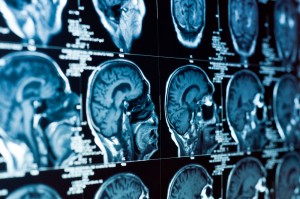How Do Benzos Affect Your Brain Chemistry

Benzodiazepines affect the brain’s neurotransmitters to treat anxiety
Benzodiazepines are a class of drugs primarily used to treat anxiety, seizures and insomnia. They are also used as an anesthetic for surgery, as a muscle relaxer and as part of a treatment program for depression and panic attacks. However, also called benzos, these drugs are highly habit forming—using them in larger amounts or for longer than prescribed by a physician can lead to addiction. Understand how benzos affect brain chemistry to help yourself or a loved make good choices when using this medication. Furthermore, if you understand how these drugs work, then you will know to seek appropriate treatment if you become addicted to them.
Brain Chemistry Basics
According to the Mayo Clinic[i], the brain is made up of millions of nerve cells organized in patterns that govern thought, emotions, behavior, movement and sensation. This fact means the brain controls everything from your heart beat to your current mood. Within the brain are neurotransmitters that carry messages from the brain to the body and back again. The brain uses these neurotransmitters to tell your heart to beat and the other parts of your body to function properly. These chemicals affect your ability to concentrate, sleep and maintain a healthy weight along with many other bodily functions, so, when they are out of balance, then adverse side effects can form.
Neurotransmitters[ii] are divided into two categories: inhibitory and excitatory. Inhibitory neurotransmitters do not stimulate the brain, so they work to stabilize mood and balance their excitatory counterparts. The inhibitory neurotransmitters include serotonin and GABA. On the other hand, the excitatory neurotransmitters include epinephrine and norepinephrine. Norepinephrine is responsible for the body’s stimulatory processes as well as for making epinephrine. When norepinephrine levels are out of balance, someone can experience anxiety as well as depressed moods. Additionally, epinephrine controls heart rate and blood pressure, but long periods of stress and insomnia can cause epinephrine levels to be low. Lastly, dopamine is considered both an inhibitory and an excitatory neurotransmitter.
Benzodiazepines and Neurotransmitters
People who struggle with anxiety and other mental illnesses have imbalances in brain chemicals. For example, when there is too much norepinephrine and the brain cannot produce enough chemicals to counteract the effects, then anxiety results. Ergo, benzos[iii] work in the brain to calm brain chemicals that have become excited. These drugs help counteract the effects of the excitatory neurotransmitters as well as stimulate the production of GABA, the chemical responsible for suppressing the activity of the nerves that release neurotransmitters.
There are many different types of benzodiazepines, and each type differs slightly in how quickly it starts working, how long it lasts and for what it is prescribed. The following list outlines the most commonly used benzos and the conditions they treat:
- Diazepam (Valium) works quickly to produce a calm state of mind. It has a long duration of 1 to 3 days, so it is used for anxiety disorders and as a muscle relaxer.
- Ativan, Klonipin and Xanax have an intermediate onset and are used to treat seizure disorders
- Alprazolam and Restoril are intermediate-acting benzos with long durations. Alprazolam is used for anxiety disorders and Restoril for insomnia.
Doctors may prescribe one of these drugs for the aforementioned conditions, but be sure you take that medication as your doctor says, not whenever you think you need a dose.
Benzos and Addiction
Benzodiazepines calm brain chemicals that have been over stimulated. They mimic the work of the brain’s natural neurotransmitters, so, with prolonged use, the brain becomes accustomed to these drugs, which means it no longer produces its own neurotransmitters. As a result, benzo addiction[iv] happens, which means the person needs more of the substance to produce the same results. Needing the drug to feel and function “normally” results in dependence, which can produce drug-seeking behaviors that quickly lead to addiction. In other words, while these drugs were originally prescribed to treat a medical condition, they can lead to addiction when people use them in larger or more frequent doses than prescribed. If you or your loved one uses benzos to treat an anxiety or sleep disorder, then look for the following symptoms of dependence to see if you need help:
- Becoming preoccupied with getting and using the drug
- Needing a supply of the drug on hand at all times
- Needing more of the drug before the next dose is due
- “Doctor shopping” to get new prescriptions for the drug
- Engaging in dangerous behaviors, like driving, while under the influence of the drug
- Engaging in illegal activities, such as stealing, to get money for the drug
- Becoming more immersed in the drug culture
- Changes in physical appearance and personal hygiene
- Sudden, angry outbursts and mood swings
Seek help for these issues to curtail addiction and to maintain your health.
Find Help for Benzo Addiction
Benzodiazepines can be an important part of a treatment program for anxiety and other medical conditions, but they are highly habit forming and can lead to addiction if abused. If you or a loved one struggles with benzo addiction, then know that we are here for you. Call our toll-free, 24 hour helpline now to speak to an admissions coordinator about available treatment options.
[i] The Mayo Clinic. Slide Show, “How Your Brain Works.” Accessed October 28, 2016. http://www.mayoclinic.org/brain/sls-20077047?s=7
[ii] McGill University. “How Drugs Affect Neurotransmitters.” Accessed October 28, 2015. http://thebrain.mcgill.ca/flash/i/i_03/i_03_m/i_03_m_par/i_03_m_par_benzodiazepines.html
3 The RxList. Benzodiazepine Drug Information. Accessed October 28, 2015. http://www.rxlist.com/benzodiazepines/drugs-condition.htm
[iv] Ohio Hospital. “Benzo Abuse Symptoms, Signs and Effects.” Accessed October 28, 2015. http://www.ohiohospitalforpsychiatry.com/addiction/benzos/signs-effects-symptoms

 We take your privacy seriously. To help ease any concerns and uncertainty about calling for drug and trauma abuse help
We take your privacy seriously. To help ease any concerns and uncertainty about calling for drug and trauma abuse help